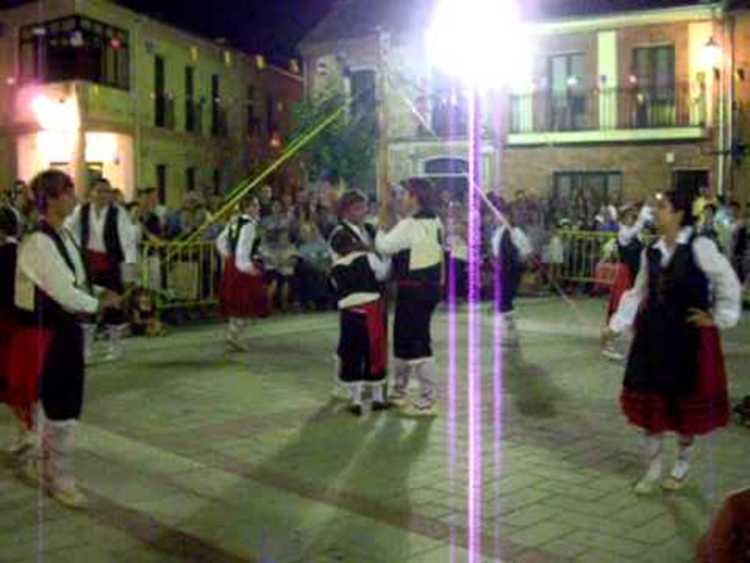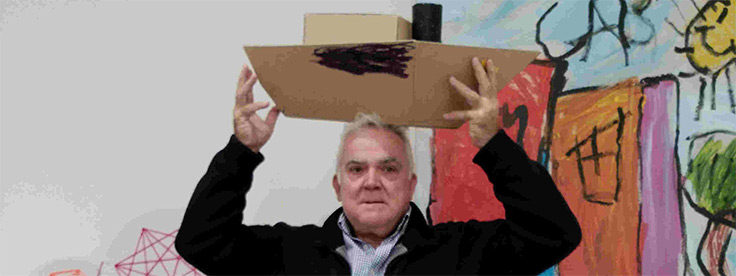
EL BAILARÉ “El Bailaré” fue el padre de un buen amigo familiar mío. En las fiestas principales de Navalmanzano, Segovia Y sus romerías No se atrevía a sacar a bailar a las zagalas Temeroso de que todas le dieran calabazas. -Ya vienen las segadoras Ya vienen las amas de casa Y las jóvenes venidas de Segovia y Madrid Que han ido a Misa. -Baila “Bailaré”. -Yo no bailo. A la romería he venido no por bailar Sino por ver el baile del paloteo. -Mira, esa chica que te gusta Ha perdido la cinta del pelo. -Si ha perdido la cinta del pelo, que la pierda A mí no me va a entristecer. Además ¿qué menos puede perder una mujer En el baile? -Bailaré tu temes enamorarte Y que te diga una hembra que te quiere Y a la postre olvidarte. -Pues sí; temo subir con ella La cuesta arriba, y bajar al llano Para jugar con nuestros sexos Bajo los avellanos. -Pero, esa hembra que te gusta Ya la puedes olvidar Pues han pasado por ella el Secretario Melitón El tonto del lugar Y un forastero con don. -¿Con don quién? -Sí, ese señorito de Haro, la Rioja Con el que tuvo un hijo Parido en el campo. -Pero, aunque a mí me gusta la alegría De ese culo mal roto No bailo; otro día, bailaré A sabiendas de que amores y dolores Quitan el sueño. Yo, como no los tengo Descanso y duermo. - THE I’LL DANCE “The I’ll Dance” was the father of a Mine’s good family friend. In the main festivities of Navalmanzano, Segovia And its pilgrimages He did not dare to ask the girls to dance Afraid that everyone would give him pumpkins. -The mowers are coming The housewives are coming And the young women who came from Segovia and Madrid They have gone to Mass. -Dance “I’ll dance”. -I don’t dance. I have come to the pilgrimage not to dance But to see the patting dance. -Look, that girl you like She has lost her headband. -If she has lost the headband, let her lose it It won't make me sad. Besides, what less can a woman lose In the dance? I'll dance, you're afraid of falling in love And let a female tell you that she loves you And finally forget you. -You are right; I fear climbing from her with her She uphill, and down to the plain To play with our sexes Under the hazelnuts. -But, that female you like You can forget it now Well, Secretary Melitón has passed through her The local fool And an outsider with a gift. -With who? -Yes, that gentleman from Haro, La Rioja With whom she had a son Born in the field. -But, although I like happiness Of that badly broken ass I do not dance; another day i’ll dance Knowing that loves and pains Take away sleep I, since I don't have these I rest and sleep.
Daniel de Culla is a writer, poet, painter and photographer. He’s member of the Spanish Writers Association, Earthly Writers International Caucus, Poets of the World, (IA) International Authors, Surrealism Art, Friends of The Blake Society, Nietzsche Circle, and others. Director of Gallo Tricolor Review, and Robespierre Review. He participated in many Festivals of Poetry, and Theater, and has collaborated and collaborates with various magazines and magazines such as: Otoliths; The Stray Branch, Down in the Dirt Magazine, Alien Buddha Zine, The Creativity Webzine, The Poet Magazine, Uppagus, ReSite, GloMag, Fleas on the Dog, LAROLA, RAL’M, Misery Tourism, Leavings, The Creative Zine, Terror House Press, PS: It’s Still Poetry, Open Doors Review, Tigers Shark Magazine, Words Rhymes & Rhythm, and others.
E-mail: gallotricolor@yahoo.com.
Country of origin: Spain.
City: Burgos.

